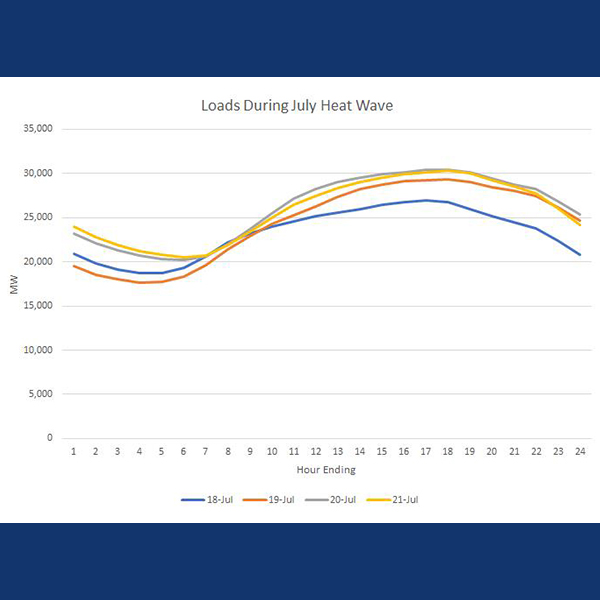DES MOINES, Iowa — SPP’s Regional State Committee on Monday endorsed a report on wind-rich areas and several recommendations related to the RTO’s effort to improve its planning processes, cost-allocation methodologies, and market products and services.
The RSC failed to reach an agreement on the Cost Allocation Working Group’s report and its recommendations when the group brought them forward during the committee’s regular quarterly July 29 meeting.
The proposed actions were included in the Holistic Integrated Tariff Team’s (HITT) package of 21 recommendations, which the Board of Directors approved on July 30 despite stakeholder pushback. (See related story, SPP Board Approves HITT’s Recommendations.)
The CAWG recommended:
- Decoupling the Schedule 9 and Schedule 11 transmission pricing zones, allowing for a potential larger Schedule 11 pricing zone;
- Evaluating the byway facility cost-allocation review process; and
- Considering a future study of the generator injection rate.
Several RSC members suggested July 29 that further evaluation is needed before decoupling the zones, while others argued against the “all-or-nothing” approach and the complexity of the work ahead.
Given a week to think about the CAWG’s recommendations, the committee approved them without discussion during a conference call Monday by an 8-1 vote, with one abstention and one not voting. The same motion was rejected by a 6-5 margin on July 29.
Texas Public Utility Commission Chair DeAnn Walker cast the one opposing vote and Oklahoma Corporation Commissioner Dana Murphy abstained. Both were outspoken in their opposition to the recommendations the week prior, saying they couldn’t agree to everything in the report.
During that discussion, Kansas Corporation Commissioner Shari Feist Albrecht asked whether the RSC would be abdicating its authority over cost allocation by not voting on the recommendations.
RSC President and Arkansas Public Service Commissioner Kim O’Guinn responded by saying, “I think we have provided plenty of input to the board.”
“More than you realize,” cracked SPP Board Chair Larry Altenbaumer.
The CAWG’s Cost Allocation in Wind-Rich Areas report determined that SPP’s current cost-allocation methodology “and/or rate recovery mechanism in zones with a high proportion of generation relative to zonal load is not reflective of cost-causation principles.”
John Krajewski, representing the Nebraska Power Review Board, said the CAWG identified three potential rate approaches for further review, which will be folded into the HITT work: generation injection, zone consolidation and a “surgical approach.” The latter, recommended by Chairman Emeritus Jim Eckelberger, would provide a narrow process through which costs for specific projects between 100 and 300 kV “can be fully allocated on a regionwide basis.”
“It had more appeal than the broad byway cost-allocation project,” Krajewski said.
RSC Ponders Joining OMS on Tx Incentives Comments
During the conference call, the RSC also debated whether to join onto the Organization of Tx Incentives NOI Brings Calls for Broader Reforms.)
The OMS comments included a section on interregional planning, drawing the RSC’s interest. SPP stakeholders in particular have been frustrated with the lack of interregional projects with MISO.
The draft comments are “not fully formed, but they give you an idea of where the OMS is leaning,” Albrecht said.
She said she saw this as an opportunity for the OMS-RSC Seams Liaison Committee, on which she serves, to “emphasize the states’ interest in interregional planning issues.”
“But if the RSC wants to join [the comments], we can do that,” she said.
Albrecht said the OMS plans to post the draft comments Aug. 15, in advance of an Aug. 22 meeting to finalize the comments. The RSC penciled in a meeting on Aug. 23 to review the final document and decide whether to join the comments.
FERC provided an Aug. 26 deadline for reply comments.
Regulators Cancel 2020 Safe Harbor Review
During its July 29 meeting, the RSC did endorse the CAWG’s recommendation to leave the safe harbor eligibility criteria and limits untouched and not to conduct a limited review of the waiver criteria in 2020, given the working group’s HITT responsibilities. Instead, the group will perform a full review in 2021, the first of “at least one every five years.”
Missouri Public Service Commission economist Adam McKinnie said the CAWG did not “see any problems” with canceling next year’s review. He said the working group determined there was “no significant new information” since the end of the 2018 comprehensive study.
The RSC began requiring more limited reviews when a full study in 2016 found no changes were needed. Subsequent safe harbor reviews have come to similar conclusions, leaving some to wonder whether they are worth the effort. (See SPP RSC Leaves Safe-Harbor Thresholds Unchanged.)
“I told my [CAWG] representative that the review is not a good use of their time,” Walker said, in pushing for a full review at least once every five years.
The reviews are conducted to determine whether modifications should be made to the thresholds used to determine what project costs should be borne by load-serving entities making long-term transmission service requests (TSRs).
SPP’s aggregate transmission service study process combines into a single study all long-term point-to-point and designated network resource requests received during a specified time period. The RTO splits the costs of transmission projects between the entire SPP footprint and the LSEs purchasing transmission service for designated resources — those used to meet the LSE’s capacity margin requirement.
The safe harbor exempts LSEs from upgrade costs when a TSR meets the aggregate studies’ waiver criteria, which include:
- Wind generation not exceed 20% of designated resources.
- TSRs for designated network resources must have a minimum five-year term.
- Designated resources may not exceed 125% of forecasted load.
The RSC also approved its 2018 audit report. Auditing firm Landmark CPAs reported no disagreements with management that could be significant to the report’s financial statement.
— Tom Kleckner







